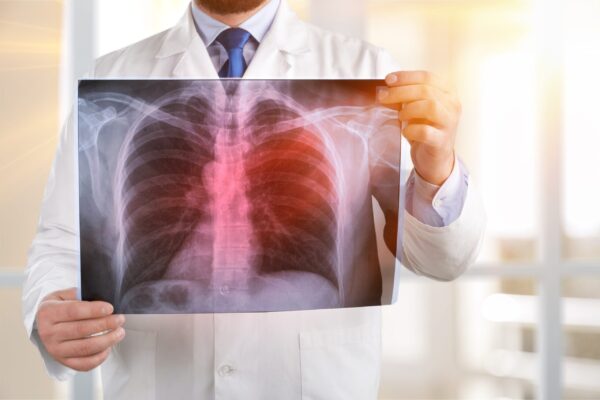TUBERCULOSIS
Tuberculosis diagnosis and treatment in Washington, D.C.
Tuberculosis, also known as TB, is a potentially serious infectious disease affecting the lungs. While tuberculosis was once rare in developed countries, infections began increasing around 1985, partly due to the emergence of HIV. Because HIV damages the immune system, the body is unable to fight off TB germs. Stronger control programs have put tuberculosis infections back on the decline, but this disease remains a concern for many individuals.
Causes of Tuberculosis
TB spreads when the bacteria that causes tuberculosis is transmitted through droplets released into the air when an infected individual coughs, sneezes, spits, speaks, laughs or sings. When you come into contact with these microscopic droplets, you become exposed to germs.
While tuberculosis is contagious and travels through the air via these droplets, it’s not easy to catch. Tuberculosis is much more commonly transmitted between people who live or work with each other than between strangers. Tuberculosis also has two distinct states, active and latent, and only active Tuberculosis patients are contagious at all.
Because HIV weakens the immune system, those with HIV/AIDS are many times more likely to get TB and, once infected, progress from latent to active TB compared to those who are not HIV-positive.
Risk Factors for Tuberculosis
Though it is rare, anyone can get tuberculosis. However, there are certain factors that increase an individual’s risk of contracting TB. The strength of your immune system, history of substance abuse, living and working conditions and travel habits can all have an impact on your chances of contracting TB. Some of the most common risk factors for tuberculosis include:
- Having diseases, conditions or medications that weaken your immune system such as HIV, certain cancers or malnutrition
- Traveling or living in areas with high rates of tuberculosis, such as Africa, Eastern Europe, Asia, Russia, Latin America and the Caribbean Islands
- Experiencing poverty, impacting your access to the medical care needed to detect and treat tuberculosis
- Using tobacco or other substances such as alcohol or IV drugs
- Living or working where you come into regular contact with crowded or poorly ventilated areas, ill people or areas where TB is common
Symptoms of Tuberculosis
Your body may harbor the bacteria that cause tuberculosis without you ever feeling sick. This is because, in a healthy immune system, your body is able to fight off the bacteria and prevent you from becoming sick. However, those who are infected with TB are split into those who are experiencing Latent TB and those who have Active TB.
Having Latent TB, also known as inactive TB, means that you have the infection, but the bacteria are inactive and are not causing any symptoms. Because the bacteria, in this case, is inactive, Latent TB is not contagious. An estimated 2 billion people have Latent TB, but it can turn into the other form, Active TB, without treatment.
Active TB, as the name might suggest, occurs when the bacteria are actively making you sick and can be passed between individuals. You may have Latent TB for years before it develops into Active TB. Because Latent TB does not involve any symptoms, only those who are experiencing Active TB may have the following symptoms:
- Coughing blood
- Coughing that lasts over three weeks
- Pain in the chest when coughing or even breathing
- Weight loss
- Loss of appetite
- Exhaustion/Fatigue
- Chills
- Night sweats
Treatment of Tuberculosis
Tuberculosis can be treated with antibacterial medications, however, treating this illness takes more time than other bacterial infections. Usually, those with Active TB will need to take several antibiotics for at least six months if not more. Your particular treatment plan and prescription will be determined by your doctor to ensure you get the best treatment for you.
Usually, after a few weeks of treatment for Active TB, you will no longer be contagious as your illness transitions into Latent TB. Because of this, you may also start to feel better as though you are no longer sick. However, while it may feel like you are completely recovered, it is important to follow your treatment plan exactly as it is prescribed. Failing to follow your prescription could allow the bacteria to become resistant to the drugs you’re taking, making it much more dangerous and difficult to cure in the future.
If you believe your or someone you know may have tuberculosis, please contact Washington Health Institute at 202-525-5175 or book an appointment online. Our expert care providers will help you get tested and provide you with the treatment you need.


